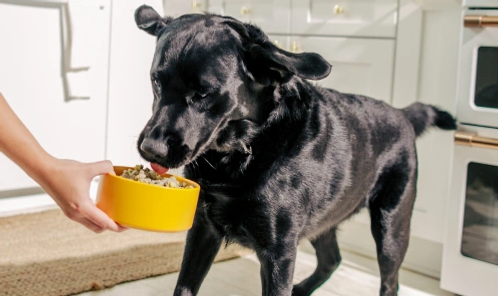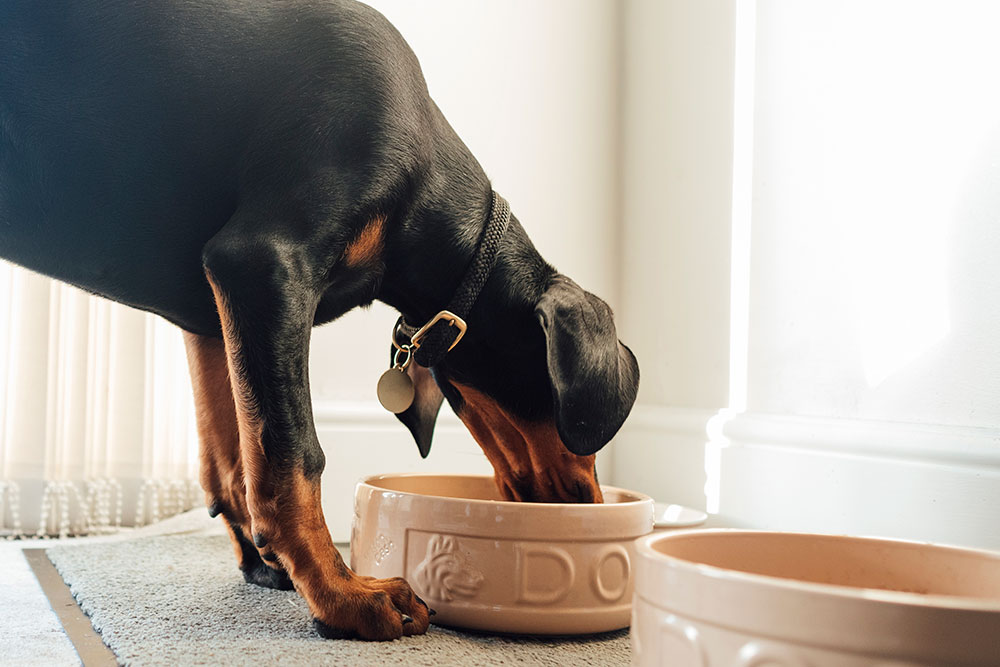We know that the microbiome changes in response to many factors, especially diet. We’ve seen this in a research study where healthy dogs transitioned from kibble to Nom Nom’s fresh diets.
But now the question is — just how quickly does the microbiome shift in response to a diet change?
A new study that was recently published in Animal Microbiome, an open-access journal for both domestic and non-domestic animal microbiome studies_._
The Study
In a crossover trial, twelve adult dogs of the same breed were fed a dry kibble control diet for two weeks, then abruptly switched to either a high-fiber dry diet or a protein-rich wet diet for another two-weeks. Dogs then repeated the control period before crossing over to the other test diet.
For each experimental period, stool samples were collected from dogs right before they switched diets, then again on day two after the diet change — and every four days after that.
The researchers identified the bacterial species (representing the microbiome), as well as the metabolites (chemical products of microbial metabolism important to a dog’s overall health) found in every stool sample, allowing them to monitor changes that occurred over time. They also analyzed the relationships between the fecal metabolites and bacterial species, and took a look at microbial functions.
The Results
The study revealed that regardless of what diet the dogs switched to, the diversity and composition of the microbiome shifted in a matter of days and stabilized around day six. And believe it or not, fecal metabolite profiles were found to dramatically shift and stabilize even faster!
However, as expected, the two diets did lead to distinct changes in the fecal microbiome, microbial functions, and metabolite profiles over time — with the high-fiber diet producing more healthful effects than the high-protein diet. And by taking a deeper dive into the connections between the metabolites and bacterial species, researchers were able to identify microbe-metabolite relationships that were unique to each diet type.
The Importance
While we knew diet was responsible for stark changes in the canine microbiome, we were only guessing before at how quickly this actually occurred. By tracking microbial changes over time on a new diet this study proved that not only do these changes occur rapidly, they stabilize in less than a week. And by analyzing two vastly different diet types, this study suggests that this timeline is independent of diet composition — a finding which we’ll admit was unexpected.
Most microbiome studies that introduce a new diet allow for 2-4 weeks to pass before collecting fecal samples, and now we know that this time frame is more than sufficient for the gastrointestinal environment of dogs to shift and reach its new equilibrium. However, a gradual transition between diets rather than an abrupt change is still a good idea, to help prevent unwanted side effects (like loose stool) along the way.
By beginning to understand how these changes in the gut microbiome and metabolites relate to one another, we’re slowly uncovering how the canine gut actually responds to a new diet — which is pretty cutting edge science.
What’s next
While this study was groundbreaking in identifying the timeline associated with changes in the gut microbiome and metabolite profiles of dogs following a diet change, the research doesn’t stop there! Future studies should consider different breeds, different living environments, larger sample sizes, and different diet types (like fresh diets, wink wink).
Lin CY., Jha A.R., Oba P. M., Yotis S.M., Shmalberg J., Honaker R.W., Swanson K.S. Longitudinal fecal microbiome and metabolite data demonstrate rapid shifts and subsequent stabilization after an abrupt dietary change in healthy adult dogs. a__nim microbiome 4, 46 (2022). https://doi.org/10.1186/s42523-022-00194-9




